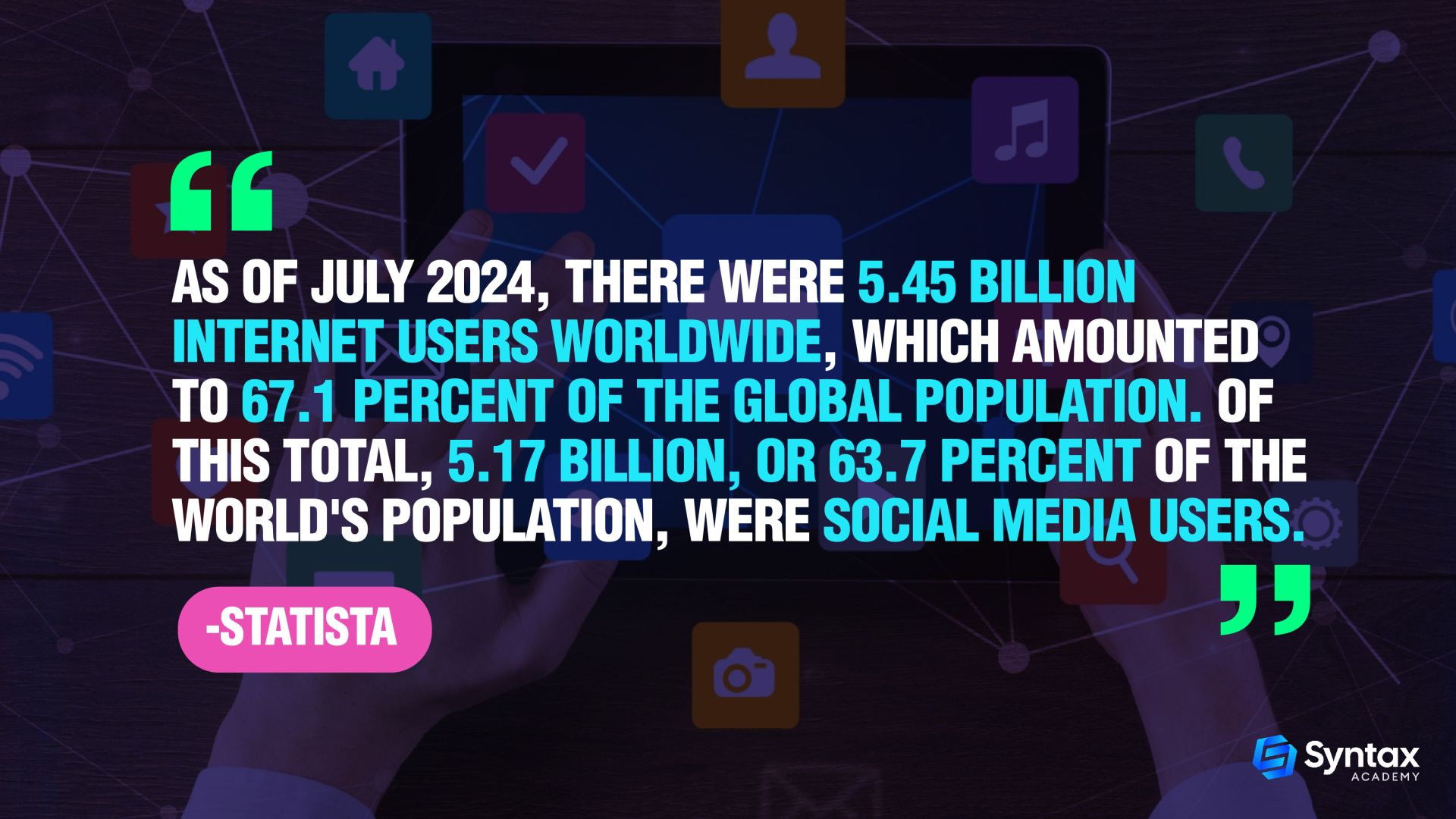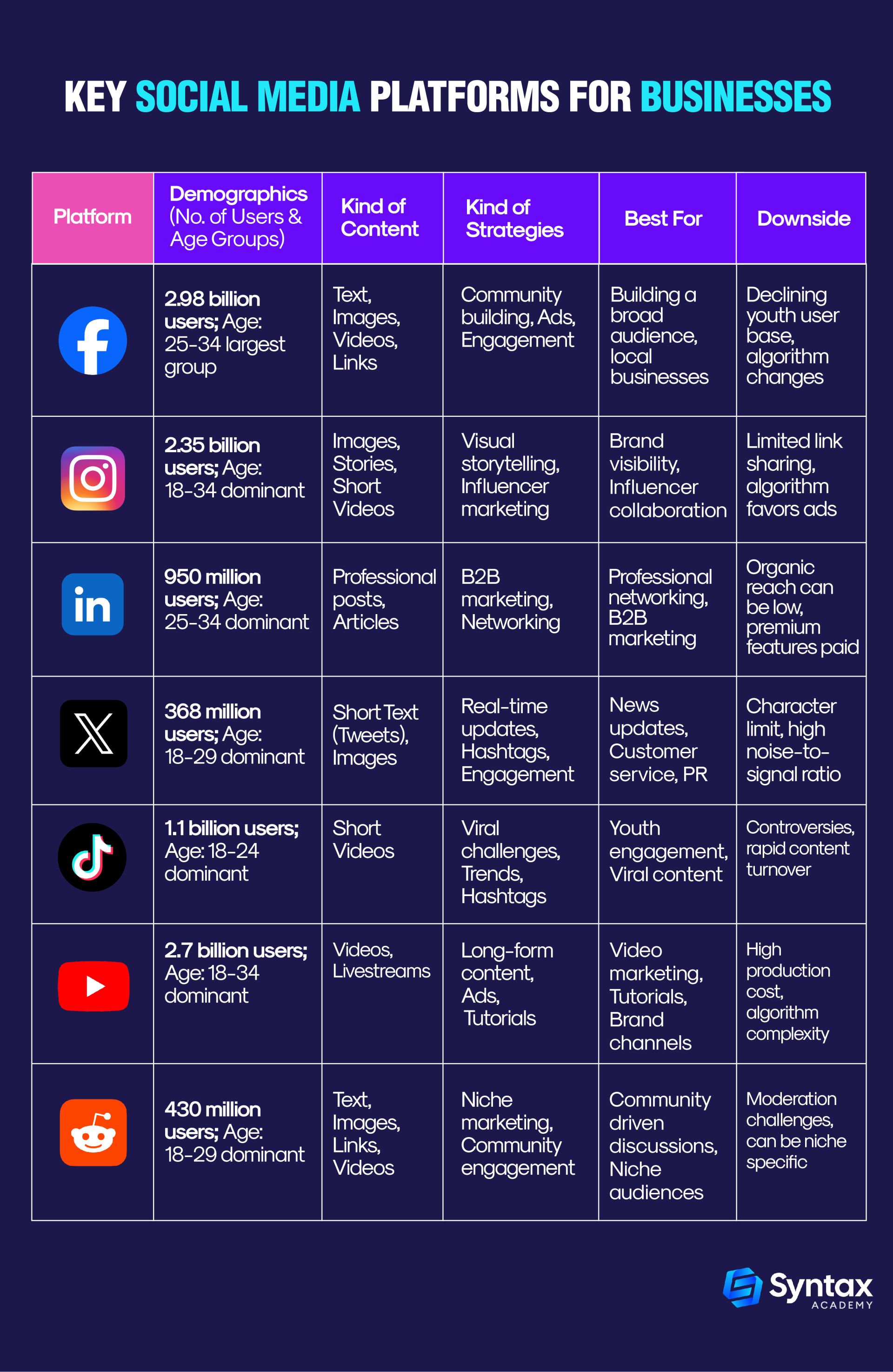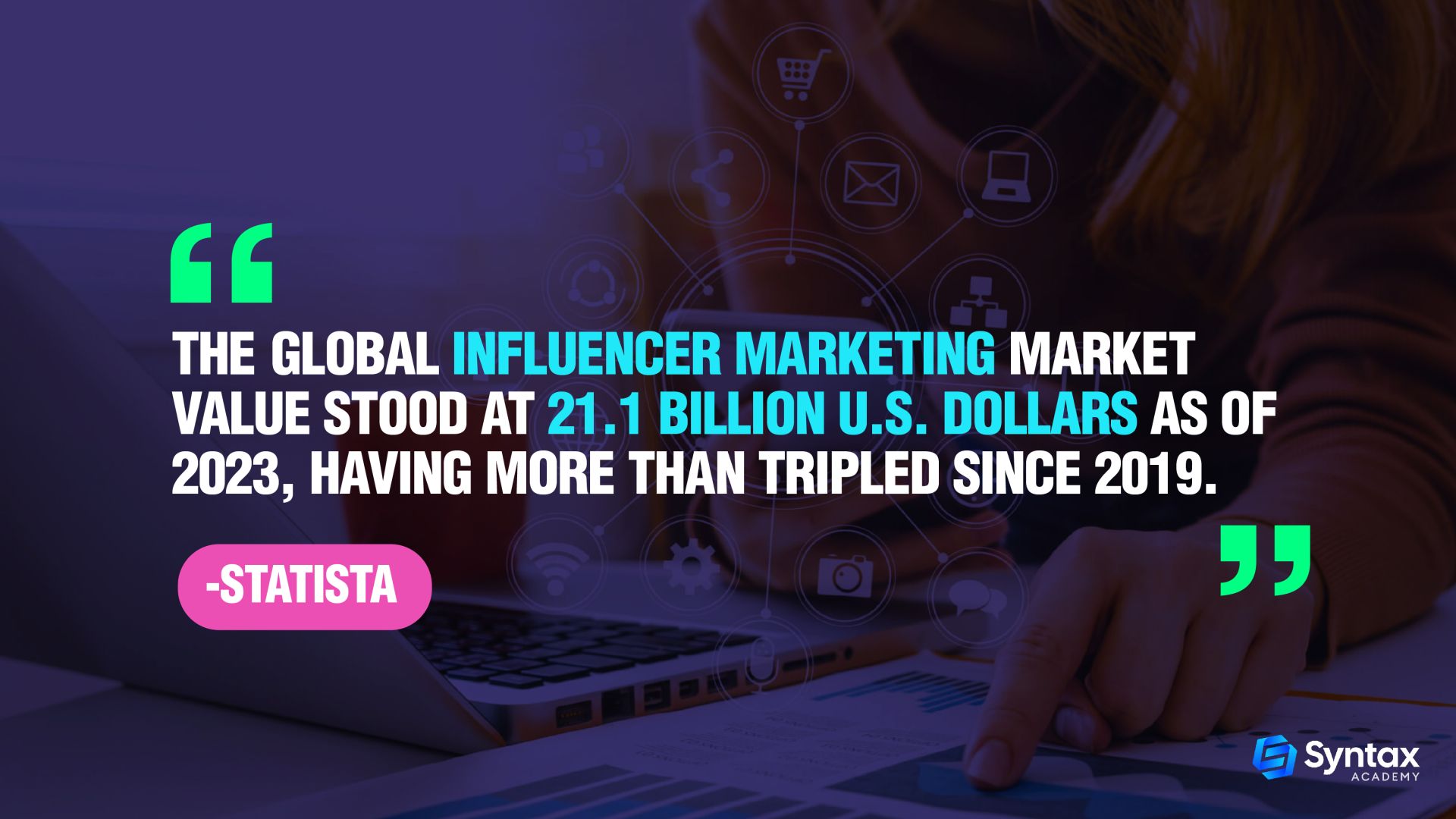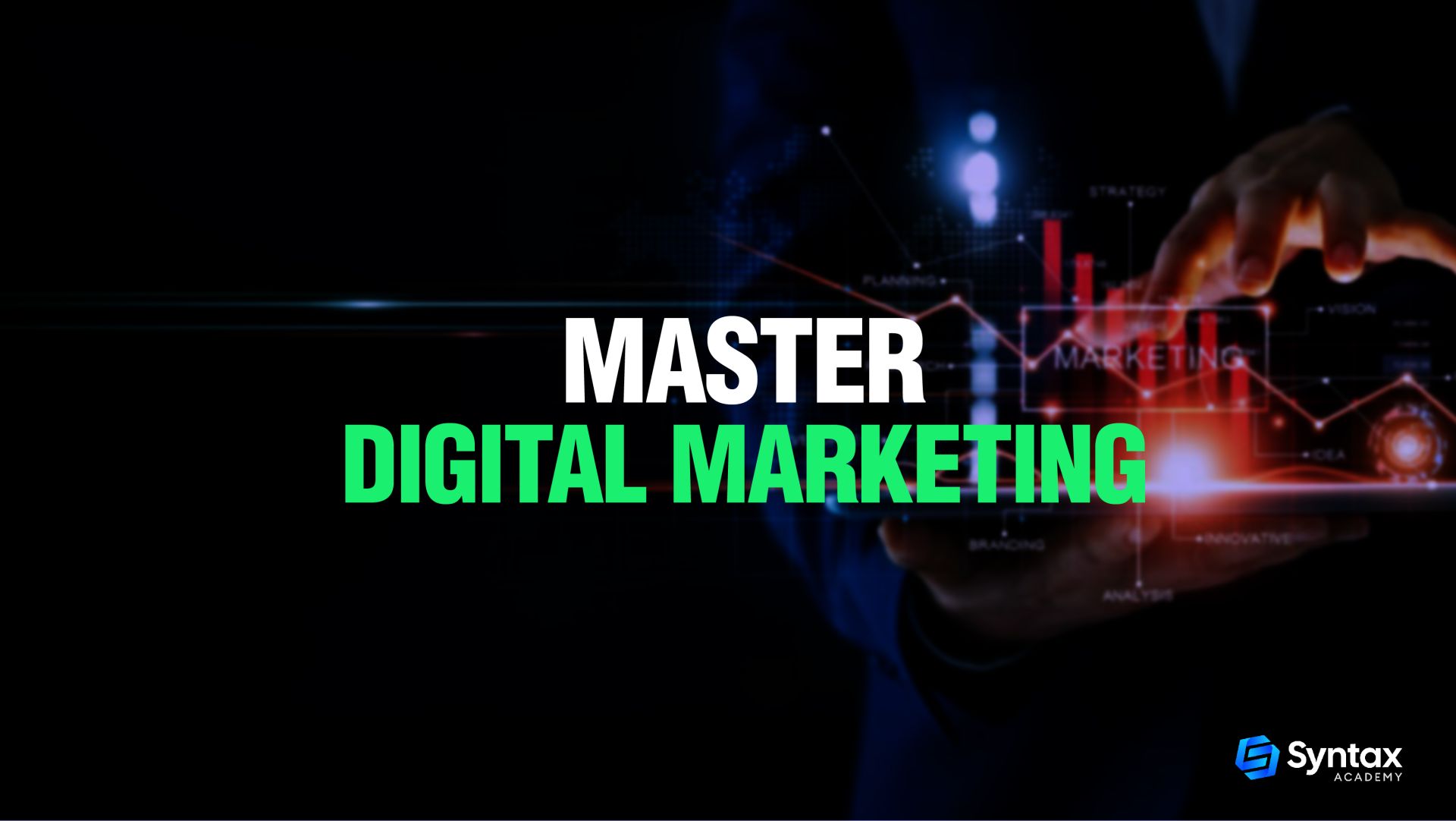Changing the Business Game with Social Media

In this blog, we’ll explore how social media is transforming the way businesses operate, highlight the most impactful platforms, and show you how to harness their power to fuel your business growth.
Table of Contents
-
1. Why Social Media Matters for Businesses
-
2. Top Social Media Platforms You Should Know About
-
3. How Social Media Boosts Business Growth
-
4. Social Media's Role in Digital Marketing
-
5. Conclusion
1. Why Social Media Matters for Businesses
Okay, let’s be real. These days, if your business isn’t on social media, you’re missing out big time. Social media allows businesses to connect with their customers directly. You can chat with your audience, get instant feedback, and even build trust without waiting for days or weeks like in traditional marketing.
What’s even better? The analytics tools that come with these platforms are gold. Imagine knowing exactly what your customers want, how they behave, and what trends they’re into. With this data, businesses can tweak their strategies, refine their approach, and hit the mark with their audience more effectively.

2. Top Social Media Platforms You Should Know About
- Facebook:
- Facebook’s been around forever, but it’s still a big deal. With over 2.9 billion monthly users, it’s a must for businesses. Whether you’re running a simple ad or a complex video campaign, Facebook’s got you covered with its advanced targeting options.
- Instagram:
- If you’re targeting a younger crowd, Instagram is where it’s at. It’s all about visuals—photos, videos, and even Reels. With features like Instagram Shopping and influencer marketing, this platform is ideal for brands that want to be in the spotlight.
- LinkedIn:
- Looking to network professionally? LinkedIn is your go-to. It’s perfect for B2B businesses and professionals who want to showcase their expertise or build connections in their industry.
- Twitter:
- Twitter’s the place for real-time conversations. Want to share news, updates, or quick customer support? Twitter is your platform. It’s all about keeping things short.
- TikTok:
- If your audience is Gen Z or you love creating short, fun videos, this is the place to be. Brands can go viral overnight with the right content.
- YouTube:
- Video content is king, and YouTube is its throne. From product tutorials to customer testimonials, businesses use YouTube for long-form video marketing. And don’t forget, YouTube is the second-largest search engine after Google!
- Reddit:
- Reddit is a bit different. It’s not about flashy ads or influencer marketing here. Instead, it’s about diving into niche communities and having genuine conversations. If you want to gather insights or engage with specific audiences, Reddit’s where you go.

3. How Social Media Boosts Business Growth
- Brand Awareness:
- By consistently sharing content, your brand gets more visibility. Take Wendy’s, for example. They’ve used Twitter to create a quirky, witty persona that people love. It’s not just fast food anymore; it’s entertainment.
- Customer Engagement:
- Social media lets you engage directly with your audience. Starbucks is great at this. They don’t just sell coffee; they build a community of loyal customers by responding to comments and engaging with their followers.
- Targeted Advertising:
- Platforms like Facebook and Instagram allow you to target specific groups with precision. You can create ads that speak directly to your ideal customer, ensuring your marketing budget is spent wisely.
- Cost-Effective Marketing:
- Don’t have a huge marketing budget? No worries. Social media offers affordable options for businesses of all sizes. Remember Dollar Shave Club? Their viral video campaign cost next to nothing but skyrocketed their brand.
- Lead Generation and Sales:
- Platforms like Instagram and Facebook have integrated shopping features, making it super easy to sell directly through social media. It’s like having an online store built right into your feed!
- Analytics & Insights:
- As I mentioned earlier, the data from social media analytics is priceless. It helps you understand what’s working and what isn’t so you can adjust your strategy accordingly.
4. Social Media's Role in Digital Marketing
These days, social media isn’t just an “add-on” to your marketing strategy. It’s central. The content you create for social media can be repurposed for blogs, email newsletters, and even ads. Plus, all those likes, shares, and comments? They help boost your SEO, giving your website more visibility.
And let’s not forget influencer marketing. Working with influencers allows businesses to tap into new audiences in a way that feels more authentic than traditional ads.

5. Conclusion
In today’s digital age, social media isn’t just a sidekick—it’s at the heart of how businesses operate, grow, and engage with customers. From boosting brand visibility to creating direct sales channels, platforms offer endless possibilities. By leveraging these tools effectively, businesses can not only reach wider audiences but also build stronger relationships with their customers.
If you’re ready to take your social media skills to the next level and truly master the art of digital marketing, consider enrolling in the Digital Marketing course at Syntax Academy. This course will equip you with the latest strategies, tools, and insights to help you navigate the evolving world of social media marketing and drive real results.

Share with your community!
Related Article

AI & ML
Is Ethical AI Possible?
By: Martha James
"Technology is neither good nor bad; nor is it neutral." - Melvin Kreuzberg (Historian) This famous quote captures the complex nature of technological advancements, including Artificial Intelligence (AI). As AI continues to shape industries and society, a pressing question arises: Can AI be ethical? With its potential to enhance lives or cause harm, the development and deployment of AI systems must be guided by ethical principles. But is it truly possible to create ethical AI? This blog explores what Ethical AI is, the principles that guide it, and how we can ensure that AI is ethical.
Read More

Digital Marketing
10 Key LinkedIn Tips for Aspiring and Current Tech Professionals
By: Martha James
In today's digital era, the allure of making money online is stronger than ever. Among the many opportunities available, Amazon FBA (Fulfillment by Amazon) stands out as a game-changer for new and experienced entrepreneurs alike. Imagine having access to a global marketplace where millions of customers can discover and buy your products, all while Amazon handles storage, packaging, and shipping. It sounds amazing, right?
Read More

Career and Jobs
10 Common Fears About Changing Careers and How to Conquer Them
By: Martha James
Changing careers can be daunting. Whether
you're driven by passion, seeking fulfillment, or ready for a change, fears
often hold us back. However, with the right mindset and strategies, you can
turn these challenges into opportunities for growth. In this guide, we’ll tackle common fears
about changing careers with practical strategies. From fear of failure to
concerns about financial stability and uncertainty, each obstacle will be met
with actionable solutions and empowering exercises.
Read More
Professionals from Industry Pioneers Choose
Syntax Academy for Skill Mastery
